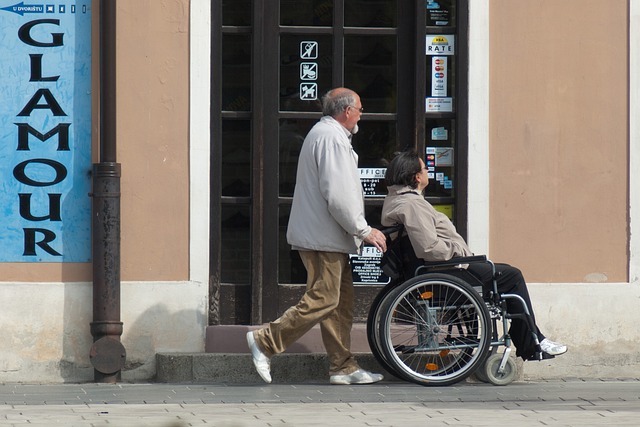Why I’m grateful for good health when I’m healthy
Once again, I find myself dealing with (what I fervently hope will be) the temporary loss of what I’ve come to think of as robust good health privilege. Here, I use the term privilege both in the presence of what it enables us to do, even how it advantages or benefits us, and also in the absence of obstacles that we must overcome or not even encounter.
Health is related to the presence and degree of one’s capacity to move, carry out activities of daily life, navigate one’s way through the world, and successfully negotiate challenges we face as we go; it’s our ability to enjoy whatever activities we want to engage in with our bodies, heart and mind. Just as significant is its relationship to the absence of obstacles in our lives. A good immune system, good eyesight and hearing, good balance, strength, flexibility, good mental health – all of these make for a smoother passage through the vicissitudes of life.
Robust good health is a privilege. It just is. Having all of one’s mental and physical ‘parts’ working as one needs when one requires them to work properly is a privilege.
Those of us fortunate enough to have robust good health tend to treat it the same way that most people treat having any privilege. We take it for granted. We take it as our right, what we consider normal and part of the ‘right order of things’. We expect it to last unchanged indefinitely. We can also tend to be so confident of it being integral to who we take ourselves to be and how we count on our lives to unfold, that we don’t tend to do anything to safeguard it or maintain it much. We might even take risks in our everyday lives with no regard for the possibility that this might compromise our robust good health. No matter what we do, ingest or participate in, we expect it to remain a constant.
For most of us, it is the case that we don’t know what we had until we lose it. But when I’m feeling healthy, I am grateful for that good health.
The training ground
My dawning understanding of the significance of robust good health has been hewn over the arc of my life out of each experience I have faced of its sudden or gradual loss. Each time I’m in this position, I become aware of how much harder everything becomes – suddenly, things I take for granted, and don’t think twice about (opening a jar, climbing over a step, getting in or out of the bath, walking) become the focus of intense consideration, planning, and uncertainty. The cognitive load of thinking, planning, contingency planning, and executing some or many tasks throughout the day is exhausting. Whatever feat of daily living I attempt (such as pulling up my trousers), the action is laced with anxiety, frustration, resentment and irritability – a sense of ‘This shouldn’t have to be so hard’ and ‘It’s not fair’. I’ve had to work hard to contain and keep at bay a sense of victimisation (poor me), knowing it won’t help. In fact, it will likely make things worse. And anyway, why not me? Why shouldn’t it be me, this time?
My first experience of losing robust good health came when I broke my ankle at work, and had a hairline fracture at the elbow on the opposite side of the body. Initially, using crutches was unbearable. Every single ordinary activity of daily life became fraught. I was out of action for 4.5 months. I went from being an active 24 year-old healthy woman, engaged in a very busy job, to sitting around for days with my leg elevated.
Later (in my mid 30s), I battled with chronic fatigue syndrome (CFS). In those days (the mid-1990s), especially as a woman, CFS was dismissed as depression, neuroticism, if not downright malingering and attention-seeking. Rather than a very real physical issue with fatigue and brain fog, it was considered more of a mental health issue. There was no treatment on offer, other than the suggestion of antidepressants and variations of, ‘You’ll just have to get on with it. Everybody else is.’ Dealing with that level of debilitation, along with the dismissiveness of my treating health professionals over several years was depressing itself. And very scary. The combination of working out how to keep on earning a living, taking care of myself and my needs, and managing the obstacles I faced in everyday minutiae was exhausting.
My next run-up against loss of function occurred in two parts in the one year when I was 51. First, I had a slipped disc in my cervical spine (the neck region) that left me with severe pain in my neck, radiating down one arm and no relief with medication. What helped that was surgery and a long period of pain relief and physio afterwards.
The second part came about because I had an adverse reaction to withdrawing myself from one of the cocktail of drugs I was given to ease the pain from the slipped disc; none of the drugs seemed to be doing anything. It manifested as what I term ‘absences’. I had four episodes in one day.
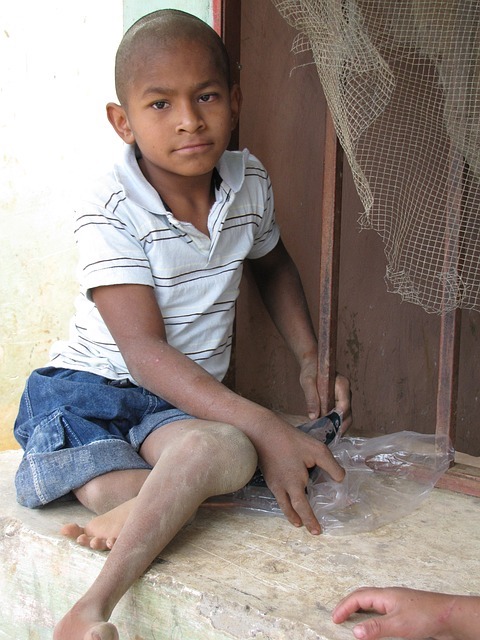
Once again, the medical establishment distinguished itself with its hubris and inhumanity, totally discounting that anything real had happened inside my brain. Instead, I was told I had a ‘histrionic conversion reaction’ – translation: hysterical woman, can’t handle stress. The head of neurology at a leading hospital I attended in Sydney told me to ‘go and talk to your colleagues’ – translation: it was all in my head. It took me four months to get another opinion from another eminent neurologist at another large hospital. This one told me that some people (like me) are genetically predisposed to have such a reaction to a rapid withdrawal from this class of drug – epileptiform seizures. My story and presentation were a textbook fit for the label. Cold and meagre comfort to hear so long afterwards.
As I’ve grown older, I’ve had two more experiences of sudden loss of robust good health. One occurred at 60 when my kneecap ‘popped’ and an investigation revealed patellar arthritis in both knees. Walking, kneeling, sitting, standing, climbing stairs – everything was painful. With physio, exercise, and grim determination, I reclaimed most of my strength and mobility, and averted surgery.
My latest foray into experiencing the impact of its sudden loss occurred recently when I had another fall and broke my wrist in my effort to shield my knees and hips from further injury. My wrist is in a cast as I write this piece now.
Once again, I face the enormity that is conscious living without robust good health – the bandwidth tax of going about my life trying to do the business of work and life when I have lost access to the resources I rely on to accomplish many things, and the need to develop hacks and work-arounds for a myriad of things (like putting on a shirt), and of course, the need to ask for, and accept, help.
Contributing factors
Across the range of these experiences, I’ve found some common factors that really drive home the biggest lesson I’ve learned: robust good health is a privilege. Unlike a right, it may be taken away, lost at a moment’s notice or it may be eroded over time and slip away – and it might not be regained. Its loss can be significantly exacerbated by insensitive, dismissive, or inappropriate treatment by health care workers and others with insufficient knowledge, or agendas to push.
In our society, those visibly without it – typically the frail elderly, the disabled (overt and invisible), and those with overt mental health challenges – are treated with dismissiveness, resentment, impatience and irritability by those with the privilege of their own robust good health and their smug unconsciousness. In our current climate, they are referred to as a drain on resources – to wit, the casualness with which Covid-related deaths among the elderly and disabled have been treated as acceptable collateral damage. Tony Abbott is on the record talking about how we should be considering the economic cost of keeping people alive and ‘the level of deaths we might have to live with’ (Guardian, 2020). His first case in point for disposal (‘let nature take its course’) was the elderly.
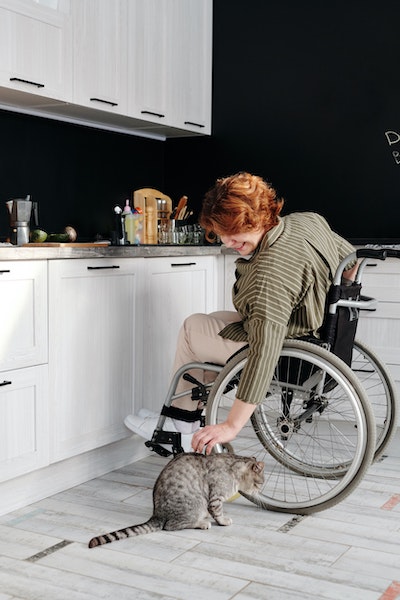
Robust good health is tied in part to privilege of all sorts – first and foremost, financial privilege. Poverty immediately rules out many options for those caught in it including:
- access to good information
- good and ongoing health care
- quality nutrition
- access to many resources, including good rehab support, and the ability to safely advocate for one’s needs (e.g. need to rest, have time off, seek workaround adjustments at work) without suffering additional negative consequences (e.g. loss of job, being passed over for promotion).
Loss of robust good health is also related in part to one’s living situation – the physical environment we live in (whether we can live in a house, have access to a lift in a high-rise flat, navigate steps, access public transport), and our social bonds and support – whether one lives in a family/couple/friendship group, whether one is partnered or one is single; whether one lives alone, or in community with others. Everything is harder if one doesn’t have the resources of social relationships to call on for assistance – to get around, to get groceries, medication, supplies, access to information, and for support.
All these factors impact the sufferer in different ways, from the issue of perception and intensity of pain, and responsiveness to pain relief, through to having the focus and energy to attend to the combination of life demands one may have – work, family life, activities of daily life (keeping house, cooking, laundry, shopping), and personal care (self care, rehab exercise, rest).
Of course, the actual physical nature of the loss of robust good health plays a huge part. Having a brain injury or, like I had, a brain ‘episode’, literally messes with our ability to think and to process everyday things. That adds to the weight of trying to problem-solve the myriad of things that suddenly must be carefully thought about, planned, engineered.
When I had epileptiform seizures, I found it confronting and very scary to be unable to problem-solve things I used to find easy. I was bewildered by being unable to use computer applications (e.g. accounting and word processing software) I had known reasonably well. To someone who has always had a good memory, loss of cognitive function and memory loss were terrifying. I worked feverishly to regain my focus, relearn lost skills. I needed to prove to myself that I wasn’t going downhill into decrepitude.
Then the physical results of this lack of capacity – whether temporary, or permanent, moderate or severe – are also hugely significant.
It’s one thing to plan workarounds and accept loss of access to reliable function for a few days or weeks (a cold, a sprain). It’s another if the loss of access lasts longer (months,) or be potentially or definitely permanent. I know my terror at the loss of choice and freedom to live independently the way I choose through mental or physical incapacity is a huge motivator for me to seek solutions, to do whatever I can to prevent such an outcome.
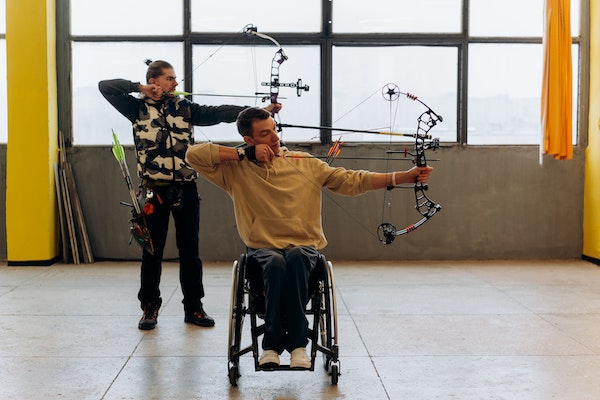
Loss
Each time I’ve lost robust good health for a while, the impact on my diminished, or lost, resources has been enormous. Along with the frustrations of what I can’t do, there is the pain and discomfort and the worry about the impact of this health crisis on my immediate and longer-range future. I have noticed major loss in multiple areas of life.
The first for me, as a person who does things for herself, largely as and when she chooses, often by herself, is the loss of my sense of independence. Until I lose it, I forget or ignore that that identity is contingent on the physical and mental capacity I take for granted when I do have robust good health. My view of who I am can shift on its axis the moment I’m no longer able to act for myself by my own will and capacity. The loss of my robust good health immediately confronts me with my relationship to need and dependency. As long as I can look after myself, I can ignore just how interdependent I really am. In western cultures, the focus on the individual fosters this disconnect from the reality of our inter-connectedness with and inter-dependence on a much wider network of relationships. As soon as I need to rely on others to take me places, to get supplies, cook for me, attend to my physical care, I’m confronted by the fragility of this edifice to independence and self-reliance I’ve constructed in my mind.
Of course, its loss is intimately tied to loss of income-earning capacity, the high cost of seeking health support (even with our Australian health system). Living with loss of robust good health for any length of time is a huge financial drain. For most of us with limited resources, this adds to the strain we experience and the loss of identity. The possibility of it lasting and tipping us over into poverty is very real — some people lose their jobs and, with that, the capacity to keep a roof over their heads and food on the table. The loss of income brought about by either being unable to work or only being able to function in a reduced capacity as a result of the loss of robust good health has terrifying flow-on effects for those affected.
Our society is characterised by capitalist, individualistic mindsets such as ‘Pull yourself up by your own bootstraps! No-one should expect a handout’. This issue then becomes framed as a ‘me’ problem, and not a ‘we’ problem. It’s seen as an individual’s problem to solve. Its resolution depends on one’s character, grit and determination. The shame and blame that goes with this mindset denies the reality – loss of robust good health is real, will likely affect all of us in time, whether through temporary illness or accident, chronic illness, or age, and therefore it needs to be recognised and supported by the collective. Unless and until we all adopt the outlook of, ‘There, but for the grace of god, go I’, until we ALL recognise it as a privilege that may be lost at any moment, we will continue to kick those afflicted with loss of robust good health privilege to the kerb in our arrogant assumptions that such a fate will never afflict us. My own loss shows me I can lose my privileged life in an instant. I can lose it for a moment (e.g. after a faint), for a period of time (a shorter illness, a clean fracture), or for an indefinite or permanent length of time (chronic illness, chronic pain, brain injury, stroke, paralysis, amputation, blindness). I find one of the factors most critical to my coping ability is my own sense of its likely duration – how long am I going to have to live with this loss of privileged access? If I think or know it will be short term (a brief cold), I do better than if I start to think I may have to live like this forever. Typically, I know I throw myself into finding ways to make the loss as temporary and short lived as I can. If and when I can.
Covid and robust good health
Observing the response to others right now to the Covid pandemic, I see the same dynamic at play.
Some who’ve had Covid experienced it in a similar way to a mild to moderate cold. They feel they resumed their robust good health and are keen to get on living with their lives. They also question, or treat with scepticism, those who experience acute or long Covid. As with my own experience when I had CFS, I find the same smug, dismissive, sceptical, mocking, minimising, blaming and disbelieving attitude prevails towards those struggling to cope with or alleviate their symptom chronicity.
Maybe once we ‘get well again’, none of us wants to recognise and really accept how temporary and fragile our robust good health really is. Like any privilege, once we have it, we want to hold onto it. We believe and claim it permanently for ourselves. The alternative is terrifying.
Right now, people with fatigue, mental fog, and various physical ailments post-acute Covid, who are wondering if this is Long Covid, are in this alternative position. They face the profound terror of wondering if the debilitating symptoms they struggle with daily will remain their new normal. A terrifying prospect. The essayist, Susan Sontag, wrote two searing essays on AIDS and cancer respectively. She challenged society and the health care field to examine the denial, victim blaming, and unhelpfully simplistic attitudes to care that they took in relation to both conditions. I wonder what she might say about our society and health care system’s approach to Covid.
Reflections
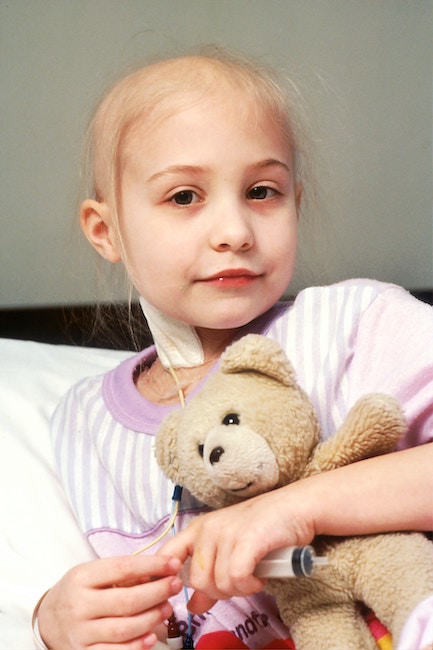
Usually, I try to pose some questions for reflection on a topic in a bid to support readers out of their stuck place.
Right now, I have no desire to add to the myriad of the ‘just do this’, self-help, change your perspective prescriptions bandied around to those who experience this loss.
If you are dealing with the loss of robust good health privilege, please know that I see you. I know your fear. I feel your frustration, your despair. I, too, rail against the far-reaching impact of this terrible loss of your sense of who you are, what life can be, and maybe what the future looks like, and I have some understanding of your pain.
If you’re supporting someone who is experiencing its loss and the loss of its attendant privilege, or you’re just curious about it, then I suggest you start to think about your own robust good health as a privilege and treat it with care and appreciation. Consider bringing compassion, an ethic of care and kindness to your dealings with those who don’t have that privilege right now. And consider how you can put your own privilege in service of those who need support. They’re drowning. And they/we can’t just will themselves/ourselves out of it. Check your privilege and use it well.


